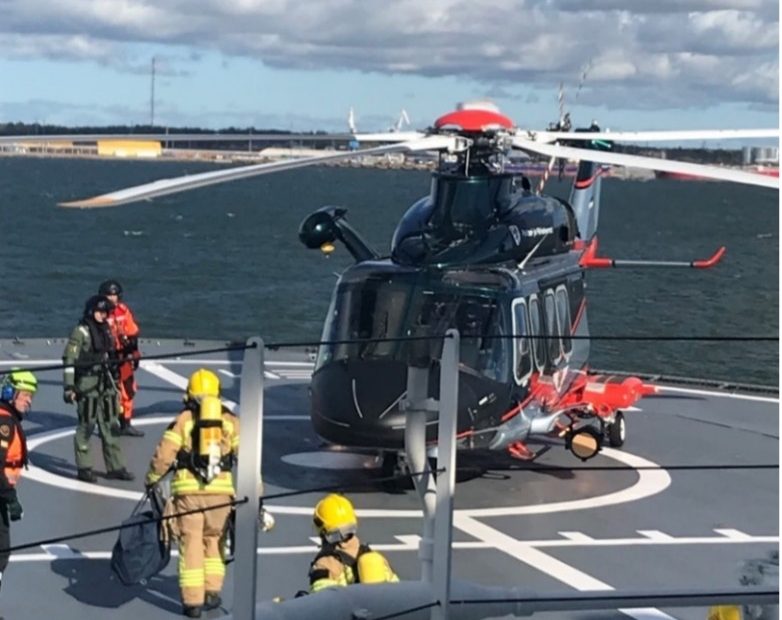The Standard Operational Procedures created by the ChemSAR project to save human lives in maritime incidents involving hazardous and noxious substances were tested in an international exercise on 13 September 2018 in Estonia. The exercise was a joint operation between several authorities from different Baltic Sea Region countries.
The project’s two-year development work got its culmination when the created Standard Operational Procedures (SOP) were put to test in the international ChemSAR live exercise at sea. However, the aim of the exercise was not only to test the SOPs but also other project outcome, namely the SOP checklists, and the chemical databank, as well as to enhance the cross border co-operation and coordination of resources between the neighbouring countries.
The rescue exercise took place in Paldiski, Estonia, on 13 September as a cooperation of several project partners and external organisations. Vessels from four different organisations were involved, namely from the Estonian Police and Border Guard Board, Finnish Border Guard, Swedish Coast Guard, and Tallink Shipping Company, the latter of which offered its M/V Regal Star to be the distressed vessel of the whole exercise.
In addition to the obvious outcome of the exercise, testing feasibility of the SOPs in a chemical incident, one can say that it offered a good learning opportunity to all involved. The participating units got, for example, a chance to learn about their own operational capacities and co-operation in international exercises.
ChemSAR project has developed the Standard Operational Procedures to enhance the maritime search and rescue operations in cases of maritime hazardous and noxious substances incidents as currently no common guidelines or procedures exist in the region. Large quantities of different chemicals are being transported by sea every day and the risk of accidents exists. If a demanding accident ever happened in the region, no country alone would be able to tackle it.
ChemSAR project has partners from five Baltic Sea Region countries. The lead partner is the Centre for Maritime Studies of the University of Turku, member of the Open ENLoCC network. Other partners are The Finnish Border Guard, NOVIA University of Applied Sciences, Marine Technology (FI), Helsinki City Rescue Department (FI), Swedish Coast Guard, Estonian Police and Border Guard Board, Lithuanian Navy / Klaipeda University, Free and Hanseatic City of Hamburg and Central Command for Maritime Emergencies (Germany).
